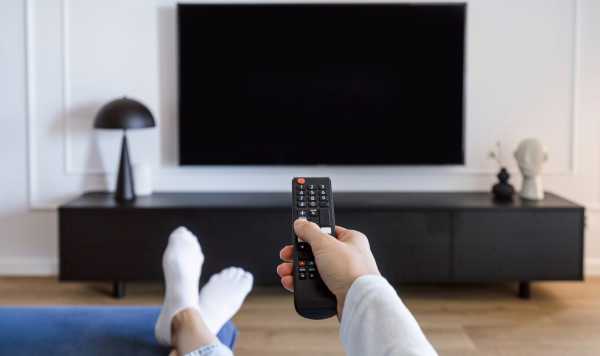In the entertainment field, luck is more important than control.

Credit: brizmaker/Shutterstock Loading the Elevenlabs Text to Speech AudioNative player…
Being a selective user of new technology like myself comes with its own set of inconveniences, especially when it comes to conversations with my fellow Americans. For example, with alarming regularity I am asked why I still have a landline, refuse to use a smartphone, or why I never read books on screens.
Yes, the life of a Luddite often feels like an existence of constant explanation, but when it comes to one of my more eccentric displays of technological resistance, I must admit that I simply don’t have a convincing excuse.
I have been a cable subscriber for more years than I care to admit. You heard that right: I still spend a significant portion of my hard-earned money on a company that uses cable to provide me with channels like ESPN, HBO, and TCM, which to most people in the third decade of the 21st century is not much different than me using rabbit ears to get ABC, NBC, and CBS.
Sure, I subscribe to a few streaming services, but I use them sporadically and half-heartedly, mostly when I’m tasked with reviewing or writing about a particular show or movie on a given platform. I’ve come to realize that this doesn’t reflect the quality of the content on those streamers — on the contrary, no channel on the current cable network can match the Criterion Channel’s extraordinarily rich mix of arthouse and international cinema — namely, the way it’s presented.
Simply put, I’d rather stumble upon a show while channel surfing than choose to watch a program by clicking on a title on a streamer. My preference can be best explained in culinary terms: most of us would rather enjoy a meal that someone has chosen and prepared for us than one that we’ve grumpily cooked for ourselves. Food tastes better when it’s prepared for us, whether by a chef, a friend, or a fellow diner. For the same reason, shows and movies are more likely to interest me if someone other than me has chosen to stream them on TV.
Perhaps my preference for watching what’s on, rather than choosing what’s simply available, has to do with my distinct sense that there are real, live people on the other side of the former. In other words, someone else has made the decision to show that baseball game or bowl game on ESPN, that series or documentary on HBO, or that classic movie or cult favorite on TCM. Obviously, I retain the freedom to choose whether to watch or skip a particular program, but I have no say in the nature or timing of said programming. This creates a useful push-pull that’s entirely absent from streaming: The network’s programmer has every right to decide whether to show a game, series, or movie. I’m simply choosing whether to watch it or not.
Subscribe Today Get Daily Emails Delivered to Your Inbox Email Address:
Streaming, by contrast, offers subscribers the power to take control of their own destiny. With streaming, scripted series no longer have to be scheduled; they can be binged. Time itself becomes under the control of streaming subscribers. Last fall, while watching a live sports event on a streaming service, I was disturbed to realize that I could pause and rewind, and then “fast-forward” to the present moment to get back to where I was. Taking control of sports coverage in this way reflects a society that has become too accustomed to the autonomy that inevitably comes with technological advancement. After all, no one attending a sporting event in person can teleport
Sourse: theamericanconservative.com